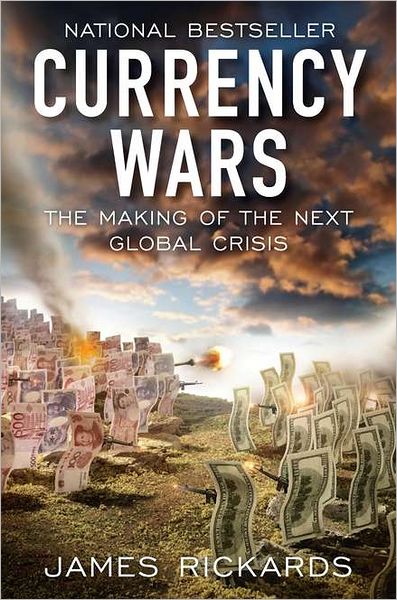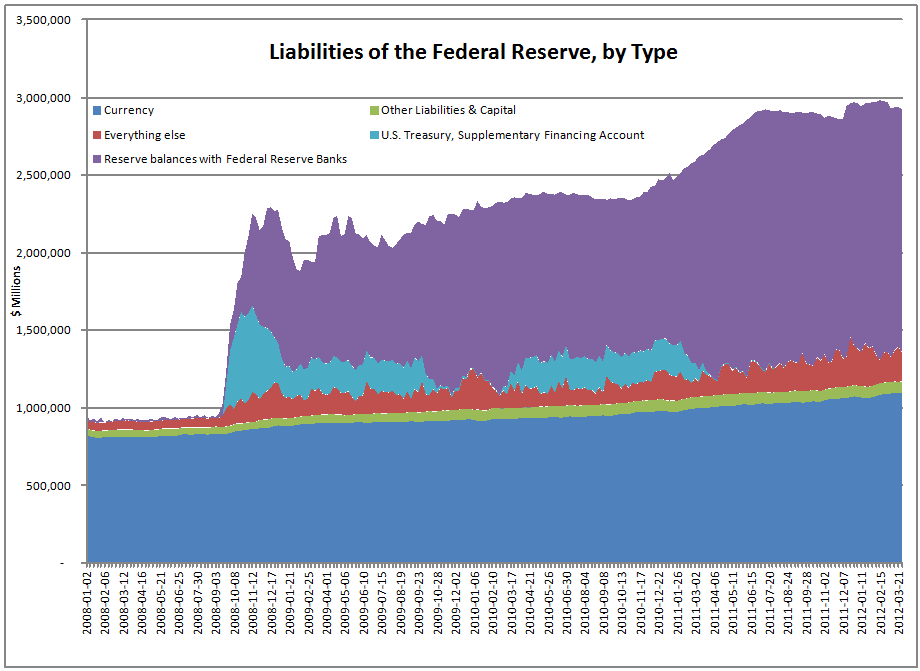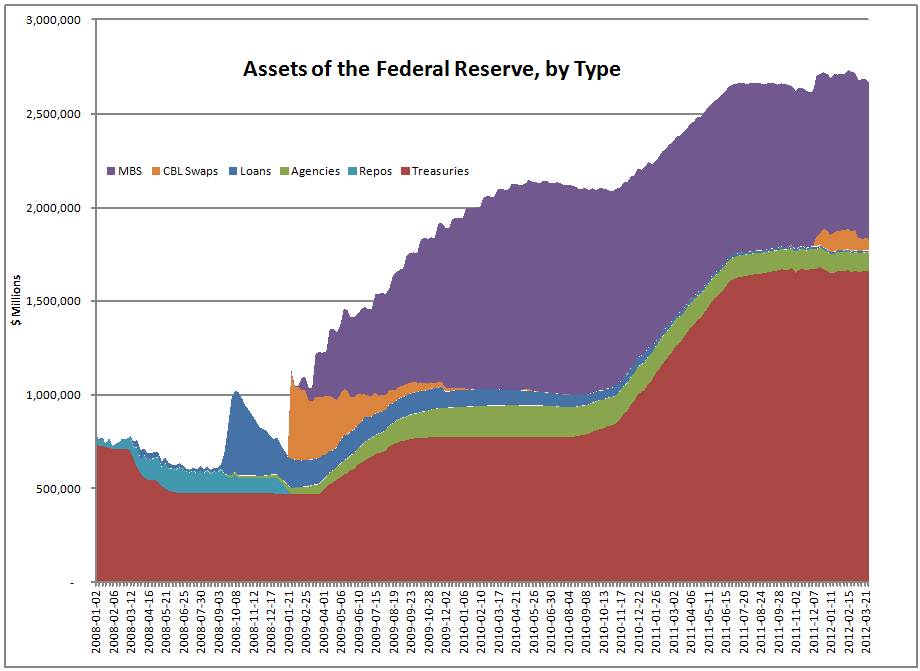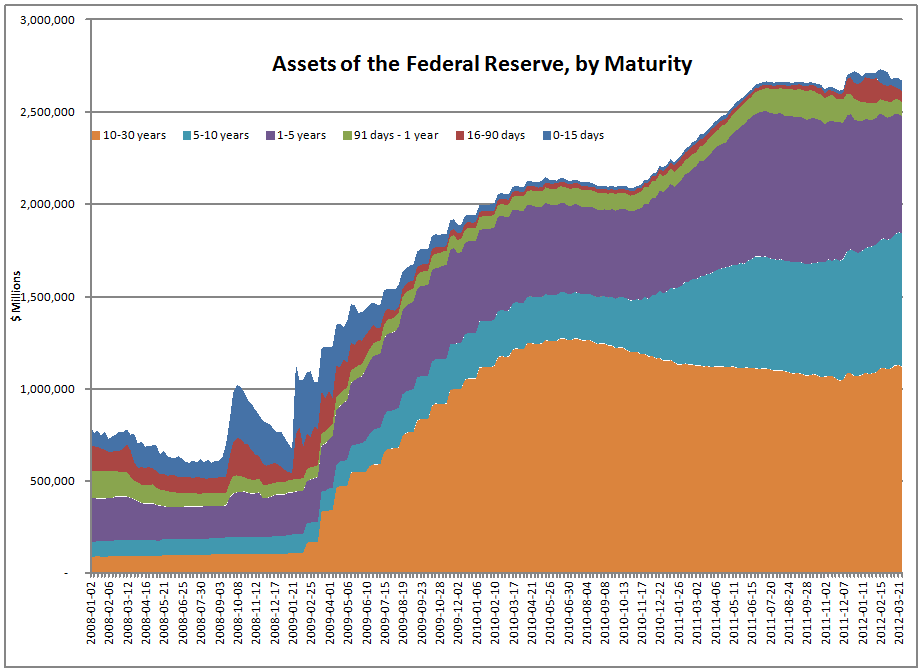Sorted Recent Tweets
Miscellaneous
- “When women stay home and they raise their kids & maintain the household, it is a job. It’s a job of love.” http://t.co/NV1JddlL #wellsaid Apr 13, 2012
- @historysquared Have not seen anything definitive on that, but production from fracking decays faster than conventional production. $$ Apr 13, 2012
- 10 Things I Hate About Tax Day http://t.co/SvezPoPV “There is absolutely no defense for it – none – & yet it persists, year after year.” Apr 11, 2012
- @TimABRussell It varies. Most of the books I review are within a year of (re)publication. Some are as old as the 1960s. >95% last 10 yrs $$ Apr 09, 2012
- So, you did an article ghostwritten by Robert Berman, Cinium’s CEO? Lovely. He gets around. But what does Smartmo… http://t.co/usg0buic Apr 09, 2012
- Voices: Phil Cioppa, On Hiring Advisers http://t.co/zNN92rP4 Most sales positions have high turnover, particularly w/intangible products Apr 11, 2012
- McDonald?s Pursuit of Perfect Fries Risks Overpromising http://t.co/DWDuesyG Harder 2 assure consistent quality if $MCD locally sources $$ Apr 09, 2012
China
- Agree that America declines, but China also RT @historysquared: Historian warns of sudden collapse of American ?empire? http://t.co/Z4hVtKkk Apr 13, 2012
- Shadow Banks on Trial as China?s Rich Sister Faces Death http://t.co/dJfEanEw It is morally wrong to put someone 2 death 4a property crime Apr 11, 2012
- Is China slowing down? http://t.co/IJA8jobS From the AEI, very clueless piece: China should raise its exchange rate & lower the central rate Apr 11, 2012
- Hong Kong?s Tsang ?Highly Concerned? About Property Price Bubble http://t.co/XHRBLgY5 Devel Nations monetary policy fuels many bubbles $$ Apr 10, 2012
- ‘Jackie Kennedy of China’ at Center of Political Drama http://t.co/MvIPw1oy The politics of China r dirtier than the US & more secretive Apr 10, 2012
- China Inflation Exceeds Forecast http://t.co/Z9hnKj1Y Too little attention paid here; too much confidence in Chinese central bankers $$ Apr 09, 2012
- @valuewalk Yes, saw it and the followup bet. I owe a decent amount of my intl economics thinking to Pettis, but not my errors 😉 $$ Apr 09, 2012
- The ways China can rebalance http://t.co/2ZtRG4F2 Michael Pettis on the constraints the China faces as it tries 2 rebalance its economy $$ Apr 09, 2012
Newspapers
- +1 RT @The_Analyst: I feel like unless its a special situation, everyone who “gets” newspapers would never make a LT investment in them Apr 12, 2012
- Buffett “didn’t get tech.” I don’t get newspapers. $$ RT @WSJDealJournal: Warren Buffett Building Newspaper Empire? http://t.co/jDx5goqw Apr 12, 2012
- I don’t get the economics of the newspaper biz $$ RT @WSJDealJournal: Warren Buffett Building Newspaper Empire? http://t.co/jDx5goqw Apr 12, 2012
Electronic Bond Markets
- BlackRock’s Street Shortcut http://t.co/JO4Wm5sY Would work better 4 stocks than bonds. Most bonds r held a long time & do not trade $$ Apr 12, 2012
- If the buyside created their own internal stock exchange, they could reduce the effect of the HFTs on the market & make life harder 4 retail Apr 12, 2012
- But an internal bond exchange as proposed by $BLK won’t do that much, institutional transaction costs aren’t that hi 4 commonly traded bonds Apr 12, 2012
- When I was a bond mgr 1998-2003, aside from obscure & illiquid bonds my commissions were $1/32nd or $1/64th per $100 — 1-3 basis points $$ Apr 12, 2012
- @TFMkts So I would ask you, have comm rates 4 bonds gone up since 2002? My normal trade size back then was $5-20Mil, comms 1-3 bps then $$ Apr 12, 2012
- @TFMkts Most bonds don’t trade, though. When I was a bond mgr, I needed guys who could find bonds. Always paid them; never let them cross2me Apr 12, 2012
Delta Airlines
- It is usually a bad sign when a company can’t manage its current business well, & it tries to enter a difficult unrelated business. $DAL $$ Apr 11, 2012
- Best quote: “Edward Hirs…says he can think of one reason why Delta would try to get into the refining business: ‘because they?re stupid.'” Apr 11, 2012
- Why Buying A Refinery Could Be A Disaster For Delta Air Lines (Even With JPMorgan’s Help) http://t.co/MDvs9D26 & http://t.co/gJ0G44Uo $$ Apr 11, 2012
Rest of the World
- Qatari Bright Lights Prompt EU?s Hedegaard to Urge Climate Plan http://t.co/0zjAmGit Another reason why multilateralism doesn’t work. $$ Apr 12, 2012
- Kenyans Almost Dead on Worst Roads Getting New Highways http://t.co/Szcs1Tcy Next time u r stuck in traffic b thankful u r not in Kenya $$ Apr 11, 2012
- These Charts Point to Trouble for Australia http://t.co/F00FtbpW Housing bubble, co-dependent relationship w/China, & large pool of hot $$ Apr 10, 2012
- It’s rich 2c Dilma Rousseff criticizing Obama. But Brazil is further down the line in the devel nations game of monetary crack-the-whip $$ Apr 10, 2012
- Rousseff Tells Obama Rich Nations? Policies Harm Growth http://t.co/Akm14Ifs Devel nations force emerg nations 2 swallow loose $$ policy Apr 10, 2012
- Bank of Canada stressed about housing http://t.co/4kC0JW3D Nothing like a debt financed housing bubble 2 make a central banker flinch $$ Apr 09, 2012
Economics
- Good Jobs News: More People Are Quitting http://t.co/1BlIvqOj The job market is more healthy if people are quitting to take other jobs. Apr 12, 2012
- Obama?s Fantasy Budget Suggests Tax Hike Surprise http://t.co/03tkRMjZ Obama would likely b more radical in a 2nd term #nothing2lose $$ Apr 11, 2012
- Tax Breaks for Wealthy Should Be Cut, Paul Ryan Says http://t.co/QppnNGQz “focus our poverty-eradication policies on treating root causes” Apr 11, 2012
- @DavidSchawel I don’t think the paper changes my main point, it will be very difficult for the Fed to remove “stimulus.” Apr 11, 2012
- Bernanke Gives College Lecture Series High Marks http://t.co/hu0WNLXq H/L overstates: ?I was very happy with the lectures,? he said. $$ Apr 10, 2012
- The Fed sold half its short-term notes via Operation Twist http://t.co/Lag2CYWs Will have no short assets if the pace continues 4 6 mos $$ Apr 10, 2012
- Job Gains in US Trail Most-Pessimistic Forecasts http://t.co/ELesokyT People asked me y I was more pessimistic than most, well… $$ Apr 08, 2012
Asset Markets
- Does ?Sell in May? Really Work? http://t.co/kBNPaslt Reality is more complex than adages. The rule should be sell September, buy November $$ Apr 12, 2012
- Gunning for yield and “quality” leaves little room for error http://t.co/HW90vwkj High quality junk does not offer enough yield 4 risks $$ Apr 12, 2012
- High-Yield Bond ETF Breaks March Low http://t.co/lLB2qX19 I sold a lot of my credit-sensitive bond investments today. Market feels weak $$ Apr 11, 2012
- @munilass @carney High earned & discount rate assumptions did lower contributions by assuming investment earnings would carry the load $$ + Apr 10, 2012
- @munilass @carney & many municipalities substituted benefit increases 4 salary increases, b/c no immed $$ effect; many factors in play here Apr 10, 2012
- Flouting Risks, Investors Gorge on Fat Yields of Emerging Market Debt http://t.co/5zZV03Jb Will eventually end badly; Russia 1998 $$ Apr 10, 2012
- Retweet after me. I HATE HFT TRADING BOTS 😉 RT @merrillmatter: Repeat after me. I HATE HFT TRADING BOTS $$ Apr 09, 2012
- How to Improve the Potential of Less Volatile Stocks http://t.co/90gHiISj Adding a quality screen further improves returns & risk/vol $$ Apr 09, 2012
- A Laugh http://t.co/IcFMDnbb @brucekrasting suggests that clearinghouses will concentrate risk rather than dissipating it. $$ #nomagic Apr 08, 2012
- The Dividend-Fund Dilemma http://t.co/MYdoxPJh I buy dividend-paying stocks because they generate good cash flows, not for the dividend. Apr 08, 2012
M&A
?
- Much $$ stuck overseas MT @ThemisSal: Just 5 companies, $AAPL, $MSFT, $CSCO, $GOOG and $PFE now hold nearly 25% of all corporate cash, $250B Apr 09, 2012
- Yeh, like dat. 2 much $$ chasing 2 little value RT @The_Analyst: @AlephBlog another brilliant cerberus deal like chrysler, gmac? Apr 09, 2012
- AT&T to Sell Majority of Yellow Pages Business to Cerberus http://t.co/RIAX6dwb Cigar butt industry; internet changes everything published Apr 09, 2012
- Both MT @ktbenner: who’s overpaying now: The Zuck or Steve Feinberg… @Pfro: $T sells Yellow Pages 4 ~$1bn 2 Cerberus http://t.co/IGLXXUrp Apr 09, 2012
- $AOL to Sell Patents to $MSFT 4 $1.1B http://t.co/upBaZBRo Too much $$ chases a legal arms race in Infotech Intellectual property #waste Apr 09, 2012
- @ReformedBroker I didn’t know Instagram that well, but they don’t seem to have a revenue model. What could $FB do with it? $$ Apr 09, 2012
?
Insurance
- RE: @marketfolly He compares AIG to P&C companies,? but the life companies are a valuation drag here.? Not a fair com? http://t.co/J4aCu4tf Apr 12, 2012
- Property insurance rates rising worldwide – Marsh http://t.co/CZOHLGfG When surplus is reduced at (re)insurers, premium rates rise $$ Apr 11, 2012
- Statutory Statements under Affiliated party transactions. Regulators would b annoyed if terms indicate transaction that’s not “arm’s-length” Apr 10, 2012
- A Costly Toy Subsidized by Others http://t.co/iJea3rTt If Guggenheim is using its insurers 2 fund Dodgers purchase, will show up in + $$ Apr 10, 2012
Eurozone
- Spain’s spreads breaking away from other risk indicators http://t.co/SulecZWv “we r in an uncharted territory with respect to this widening” Apr 11, 2012
- Has bad implications for EZ sustainability $$ RT @pdacosta: Who’s peripheral now? French economy grinds to a halt http://t.co/VSsZtaWI Apr 10, 2012
- Currency disunion http://t.co/ApXlpMXK Why Europe?s leaders should think the unthinkable; EZ can breakup on own terms, or unfavorable terms Apr 09, 2012
- Eurozone’s banks cutting dollar businesses http://t.co/wX1kHu8G European banks will never again rely hard on US MMFs to finance their $$ ops Apr 09, 2012
- Euro Was Flawed at Birth and Should Break Apart Now http://t.co/ZxPy0vId All the things that I predicted have come true & more. Bye, Euro. Apr 08, 2012
Politics
- Wind Power Seen Surging as Custom Barges Cut Set-up Costs http://t.co/XA96RbEj Don’t see how this makes the cost of wind power economic $$ Apr 10, 2012
- For Feds, ‘Lying’ Is a Handy Charge http://t.co/2tLcdyKQ Law in the US becomes more arbitrary; crimes can b dreamed up by bureaucrats $$ Apr 10, 2012
- Complexity Is Bad for Your Health http://t.co/v9pLQi1V Antonin Scalia & Stephen Breyer agree (!): Obama’s health care law unreadable $$ Apr 09, 2012
- High-Speed Rail Takes Californians 4 a Ride http://t.co/fZlC3MQx Rail makes sense in densely populated areas, won’t work in California $$ Apr 09, 2012






